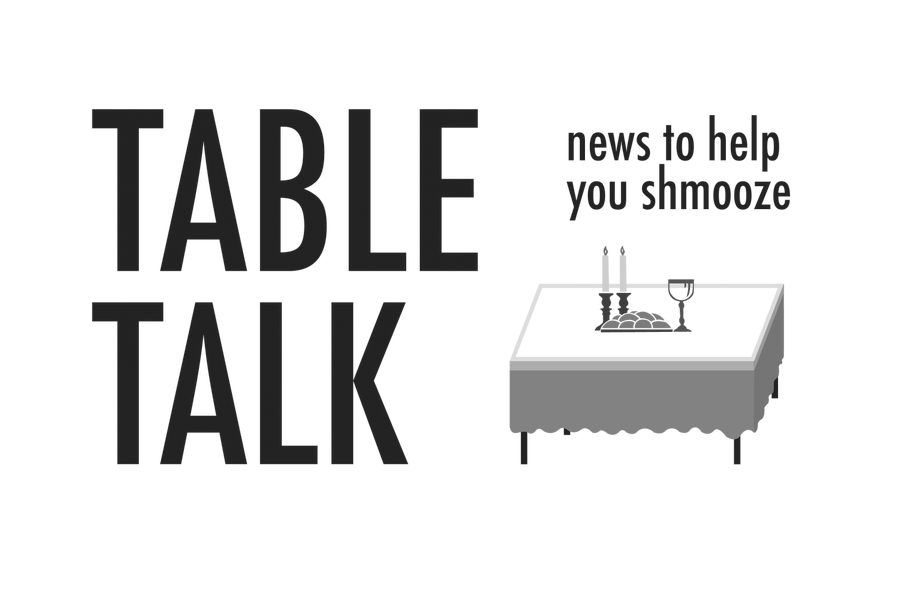AWAITING: With the Senate impeachment vote coming Wednesday, Republicans are looking for a quick and easy acquittal of the President on two Articles of Impeachment voted by the majority-Democratic House of Representatives.
Poll finds less than one-third of Shalhevet students favor removing Trump from office
February 5, 2020
Seventy percent of Shalhevet students believe President Trump should not be removed from office in the current Senate impeachment trial, while 30% believe he should be. But there are significant differences in opinion by grade, which shows ninth-graders more critical of the president than the rest of the school.
In a Boiling Point poll of 113 students conducted on paper during Town Hall Jan. 14, only the ninth grade favored the president’s removal, 53 to 46 percent. Every other grade opposed removal. Eleventh-graders opposed it by the largest margin, with 87.5 percent opposing removal and only 12.5 favoring it.

In all questions, differences in responses between genders were found not to be significant.
“I think this whole trial is absolutely ridiculous,” junior Samson Taxon said. “They started trying him before they knew if he did anything, and I think the idea of trying to find a crime for somebody because you don’t like them is un-American and it sets a bad precedent going forward.”
Many of the ninth-graders the Boiling Point spoke to seemed unsure about the whole process.
“I don’t know a lot about politics, but my family really likes Trump and I support him,” freshman Madeline Bollag said, “and, you know, I don’t think what he did — even if he did or didn’t do it — should be enough to get him kicked out of office.”
Still, while they don’t believe he should be removed from office, most students — 56 percent overall — believe that Pres. Trump committed obstruction of Congress by refusing to send any documents requested by investigating committees and by telling White House staff not to testify to those committees.
Students were about evenly split on the question of whether the president tried to get Ukraine to investigate former Vice President Joe Biden and his son, Hunter, by holding up millions of dollars of military aid, with 49% saying he did and 51% saying he didn’t.
Again, the ninth grade saw it differently, with a majority of with 56% believing he did this and 44% believing he didn’t. They were, however, joined in this opinion by the 12th-graders, of whom 68% believe he did and only 32% believe he didn’t.
In both the 10th and 11th grades, majorities said that Trump did not try to get Ukraine to investigate the Bidens by holding up aid.
On the question of whether Trump used his power as president to get Ukraine to interfere in the 2020 election, across all grades 46 percent said he did while 54 percent said he did not.
This time, the majority of ninth-graders — 60 percent — said he did not use his power in this way, while 40 percent said he did.
The 10th grade was the most evenly split, while the 11th grade remained more united, with only 20 percent believing he used his power to get Ukraine to interfere in the election and 80 percent disagreeing.
But the 12th-grade switched its partisanship, with the majority believing he did use his power corruptly– 56 percent to 42 percent.
Sophomore Adina Kurzban said President Trump’s actions were unacceptable.
“I think that all of the articles that we’ve seen, and all of the different documents, directly prove that he was doing things that were definitely not acceptable for a president to be doing in his relationship with Ukraine,” Adina said.
On the Obstruction of Congress question, only 44 percent of students overall believed President Trump to be innocent of that charge. The ninth-graders once again held the most negative view of the President, with 67% believing he obstructed Congress and only 33% saying he did not.
The 10th grade was evenly split on the issue, while the eleventh grade was only slightly more favorable towards Trump in its response this time — with 57% believing he did not commit obstruction of Congress, still a majority, but smaller than on the other questions.
The 12th-graders seemed to agree with the ninth-graders on this question, with 75% of them believing he did commit obstruction of Congress, and just 25% believing he did not.
Senior Maya Tochner said there is a distinction to be made between the public opinion and the proper course of action to take.
“I think there is a difference whether a President Trump should be removed from office and whether or not a person wants President Trump to be removed from office,” Maya said.
BP staff Benjamin Gamson and Eli Weiss contributed to this story
What you need to know about impeachment
With closing arguments wrapped up and the vote on President Trump’s impeachment in the Senate set for tomorrow, President Trump’s acquittal is all but guaranteed. All Republican senators are expected to vote no on both Articles of Impeachment, and Republicans are hoping some Democrats might join them.
The House of Representatives voted to impeach President Trump back on Oct. 31, after a month of closed-door Congressional testimony before Republican and Democratic members of the Judiciary and Intelligence committees, followed by nationally televised public hearings. Witnesses at those hearings included current and former ambassadors, career State Department and intelligence officials, and White House aides.
The original inquiry followed news that the President had telephoned Ukrainian President Volodymyr Zelensky asked him as “a favor” to investigate his political rival, former Vice President and leading Democratic presidential contender Joseph Biden, along with his son, Hunter. At the same time, the president was holding up $390 million in U.S. aid appropriated by Congress to help the Ukraine in its fight against Russia, which has annexed part of its territory.
The call was first revealed by a whistleblower, an unknown individual who worked in the intelligence section of the White House, who divulged what he had heard on that call. The White House later released a summary transcript of the call, which references powerful Javelin missiles that can destroy tanks of the type Russia is using in its war against Ukraine. The Trump administration had already sent Javelins to Ukraine, and Congress had appropriated funding for more.
The following is an excerpt from the transcript of the call between Trump and Zelensky:
Zelensky: I would also like to thank you for your great support in the area of defense. We are ready to continue to cooperate for the next steps, specifically we are almost ready to buy more Javelins from the United States for defense purposes.
The President: I would like you to do us a favor though, because our country has been through a lot and Ukraine knows a lot about it. I would like you to find out what happened with this whole situation with Ukraine… I guess you have one of your wealthy people… The server, they say Ukraine has it….Whatever you can do, it’s very important that you do it if that’s possible….
President Zelensky: Yes it is very important for me and everything that you just mentioned earlier….. I also plan to surround myself with great people and in addition to that investigation, I guarantee as the President of Ukraine that all the investigations will be done openly and candidly..
The President: …. The other thing, There’s a lot of talk about Biden’s son, that Biden stopped the prosecution and a lot of people want to find out about that so whatever you can do with the Attorney General would be great.
At the time, Zelensky was unable to buy the Javelins, which are a type of tank-destroying missile, mentioned in the call because he was awaiting the $390 million in aid.
Democrats said this was impeachable for two reasons. One, because President Trump went against Congress, which had approved and allocated the aid, and put his personal political benefit above U.S. national security interests, which consider Russia an enemy and a threat.
In doing this, they said, he abused his power and he might do it again, and passed the first Article of Impeachment, Abuse of Power. Also, it is illegal for the president to solicit interference in elections from a foreign power.
The second Article of Impeachment says that President Trump refused to turn over documents that Congress requested, thus obstructing the activity of the legislative branch of government, which has the responsibility to oversee the executive branch. He also refused to let the White House staff testify. The second Article of Impeachment claims this is Obstruction of Congress.
Republicans counter that as president, a president has the right to make diplomatic moves with allies, and that President Trump did not in fact violate Congressional mandates because the Ukraine did in fact receive the aid they were promised by Congress (after the Zelensky phone call became public). President Trump has also said the impeachment is a “witch hunt,” calling out what he believes to be an attack from Democrats who want to remove him from office.
So, partisan disagreement and all, the House of Representatives voted, and the resolution to impeach the president passed, the first article with a vote of 230-197, and the second 229-198. It is worth noting that the House has a Democratic majority.
Under the Constitution, the next step in the impeachment process was for the Senate to deliberate. The Senate, majority Republican, began its trial Jan. 16, and will vote tomorrow either to convict President Trump and remove him from office, or to acquit him. Because of the Republican majority, it is unexpected that the Senate will vote to remove Trump from office.

